Puerto Montt-Caleta La Arena-La Poza-Punta Hualahue-Rio Negro-Galeta Gonzalo-Chaiten-Santa Lucia – approx 280km
This initial instalment covers just the first few hundred kilometres of the Carratera Austral – the 1250km route that connects forests to fjords to mountains through Chile’s southern territory. As such, it’s a gentle, rural taster to the glacial drama of Southern Patagonia that lies ahead…
But even if there’s ‘better’ scenery to come, and the journey south of Puerto Montt is more travelled than some might expect, its beauty and sense of space is already undeniable. And, I can only imagine the potential that lies to either side of the thin line on the map that I’m following. I’m a little less enamoured by the motorised traffic that has a tendency to roar past, a wake of dust in its path come sunshine, or a plume of muddy spray come rainfall… But that’s cars for you, disconnected from everyone and everything that lies around them.
As for dirt road options, I’d considered riding across the island of Chiloe on backroads, and taking the ferry to Chaiten from there. But the passage from Chiloe is both infrequent, and relatively expensive. In any case, I’ll be back in the area in a couple of months, as Puerto Montt will be the point from which I begin my journey north to Peru – so I may well have time for further explorations then.
Hint and tips to be found below.
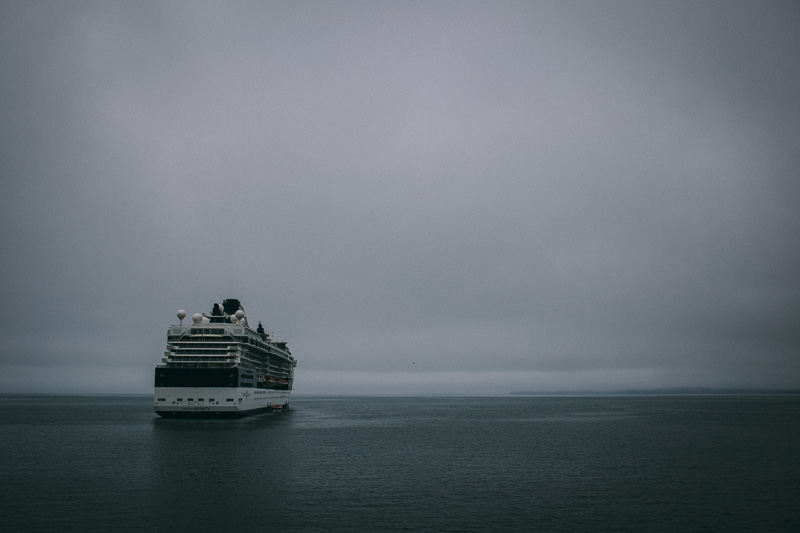
Leaving Puerto Montt. Not by ferry, but via the Carretera Austral, Chile’s main artery into Patagonia.
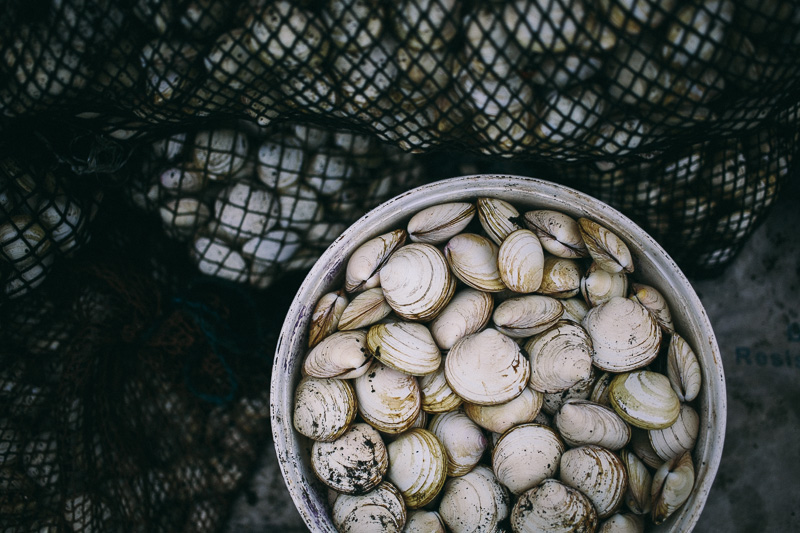
Roadside clams alongside one of the coastal dirt tracks, that run parallel to an initial stint on pavement. Although most of the CA is still unpaved, it’s only a matter of time before access is further improved.
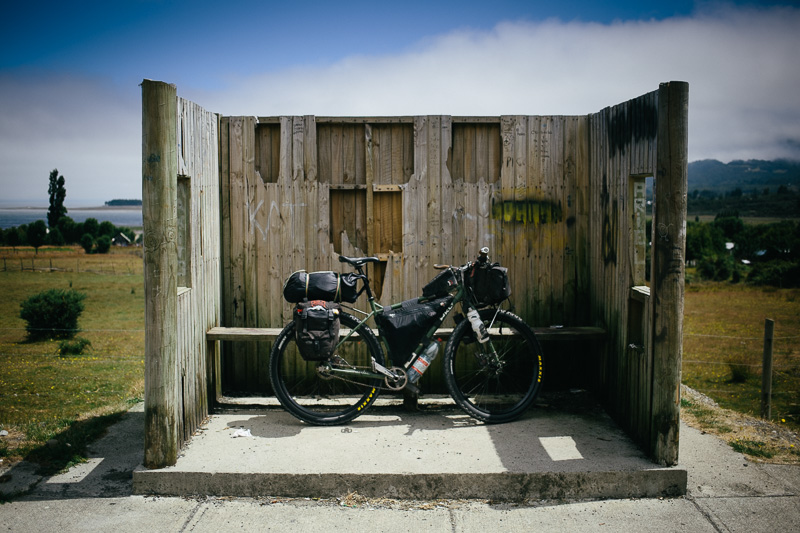
Ogre, ready for the ripio ahead, courtesy of monster 2.4in Maxxis Ardent rubber. Large volume tyres allow lower air pressure (especially at the front), which equals more riding comfort.
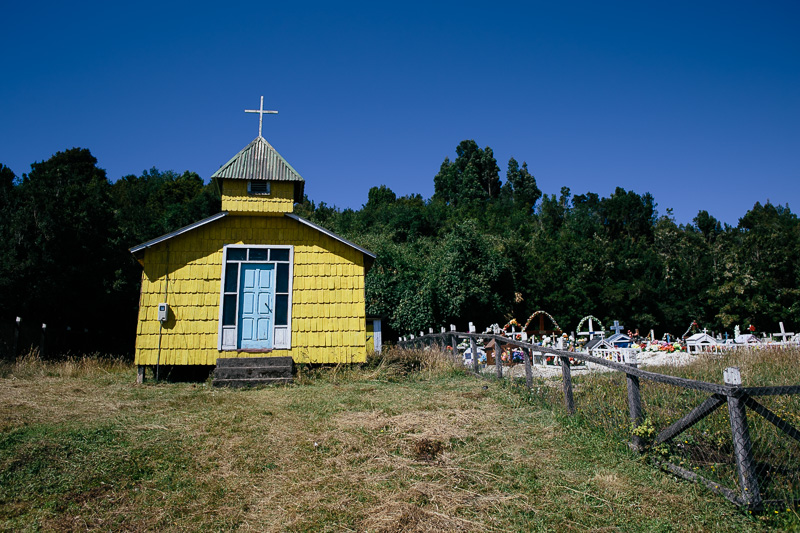
And pretty hamlets, like La Poza, a settlement that lies along the dirt road coastal detour to Hualahue.

… and this. Most are out and backs. This one connected along the coast, avoiding a stretch of pavement.
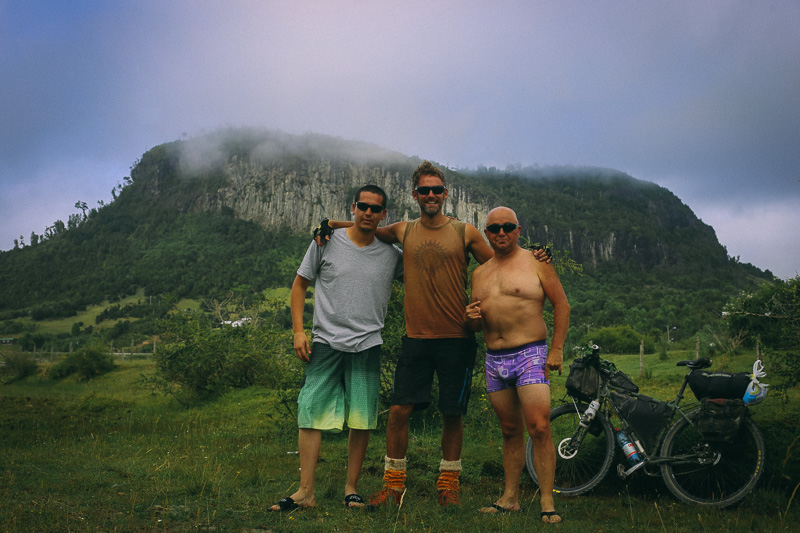
That evening, riverside camping with a group of Chilenos, also travelling by bike. There are as many Chileans cycling this route as there are foreigners, a welcome change from the usual state of affairs in Latin America.

Abundantly verdant, Patagonia is infamous for its rainfall. But when the sun does shine, prepare for lungfuls of dust.
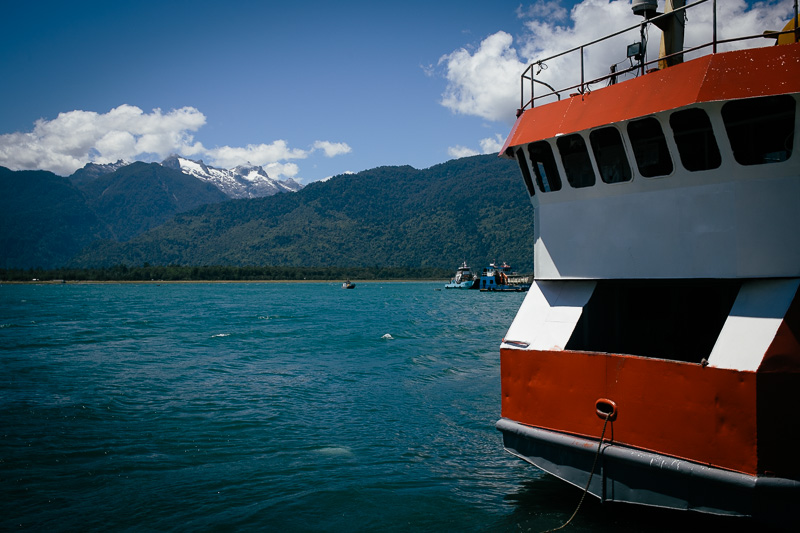
A ferry system fills any gaps in the road; an aquatic version of the Carretera Austral. I missed the midday boat from Hornopiren to Leptepu by just a few minutes. Instead, I went for a swim…

… and a fisherman gifted me a handful of fresh mussels, a perfect lunchtime treat with a squeeze of lemon and avocado.
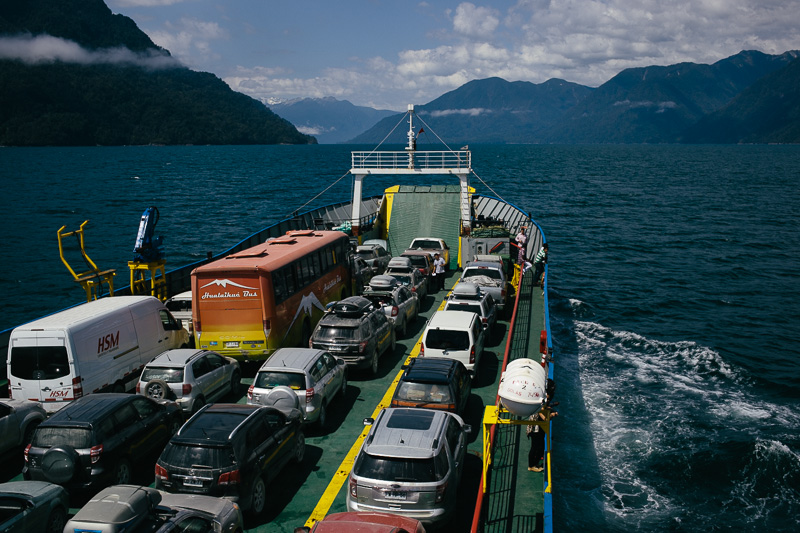
I count no fewer than10 bicycles on the ferry. A few of us race across the island to connect with next ferry to Caleta Gonzalo, from where the land version of the Carretera Austral continues.
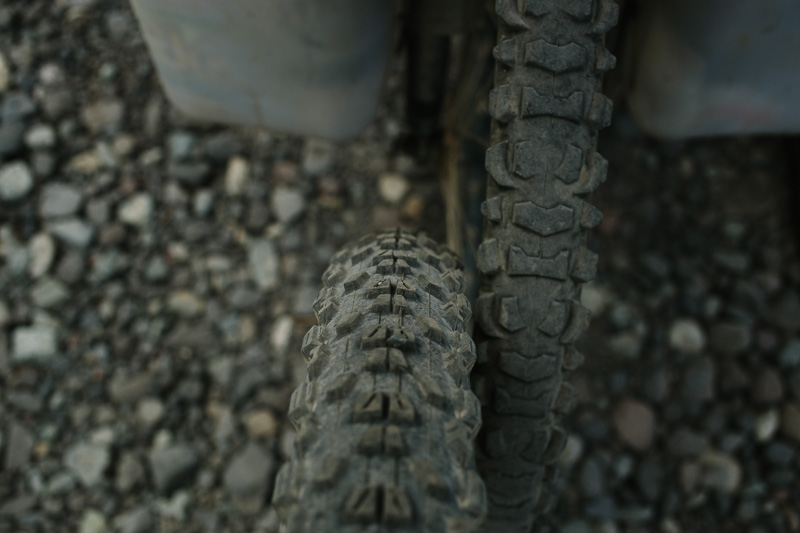
On the whole, conditions are good. But without doubt, my 29×2.4 Ardents are making life far smoother than it might otherwise be. This may just be the perfect tour for a fat bike.
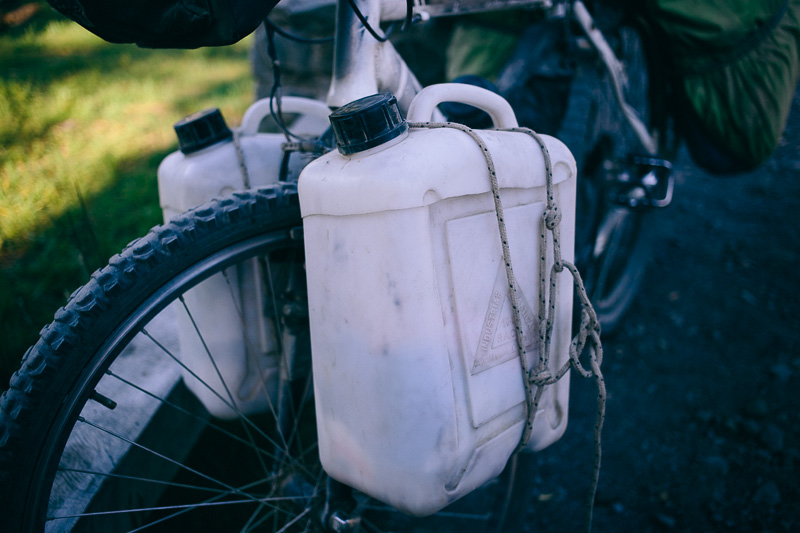
Note Polish Arthur’s front ‘panniers’, used to stow food. They form part of a rig he hurriedly concocted in Brazil, after his brand new touring bicycle was stolen on Day 1 of his trip.
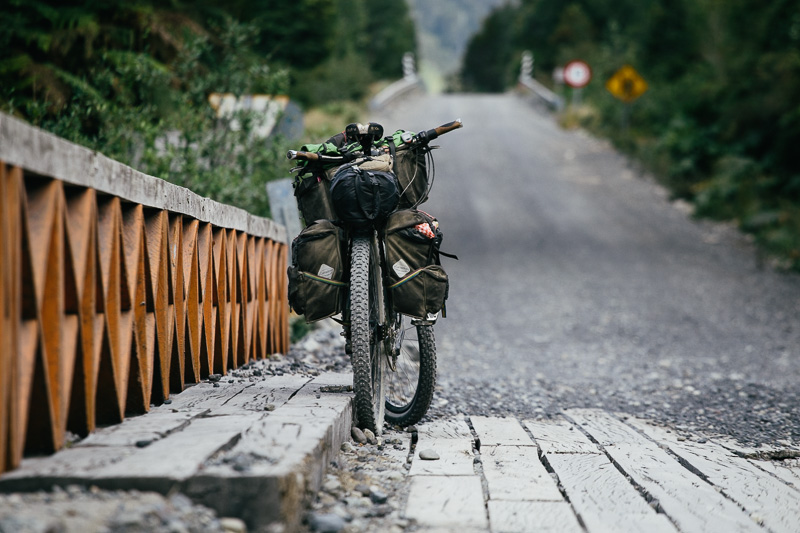
It just goes to show: you don’t need a fancy setup to embark on an adventure like this. Though I’m glad to be aboard mine.
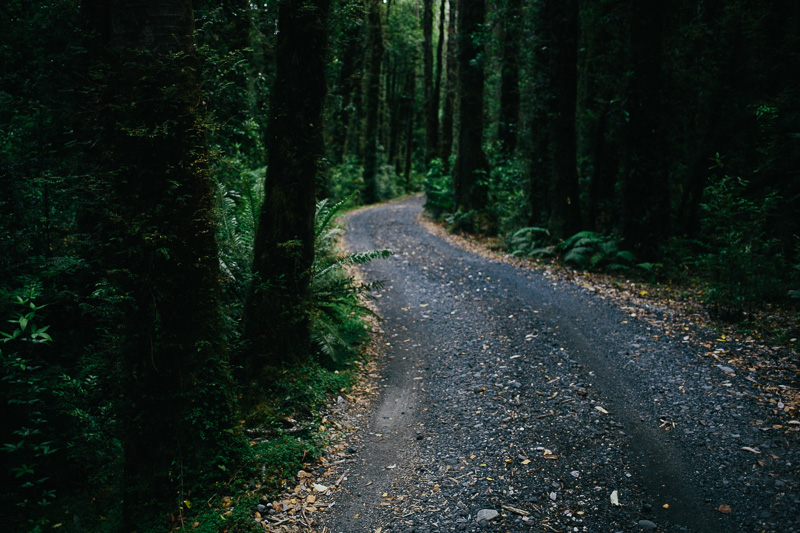
A detour into Camping Volcan, part of Pumalín Park, set up by US business magnate Douglas Tompkins – a mountaineer and conservationist – in the 1990s.
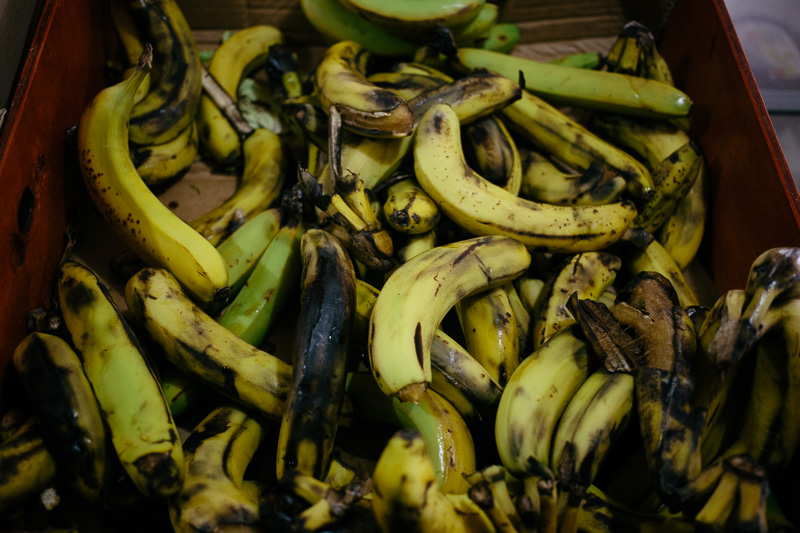
These bananas haven’t fared too well on the bumpy journey south… On the whole though, I’m surprised by the quality and range of the fresh produce.
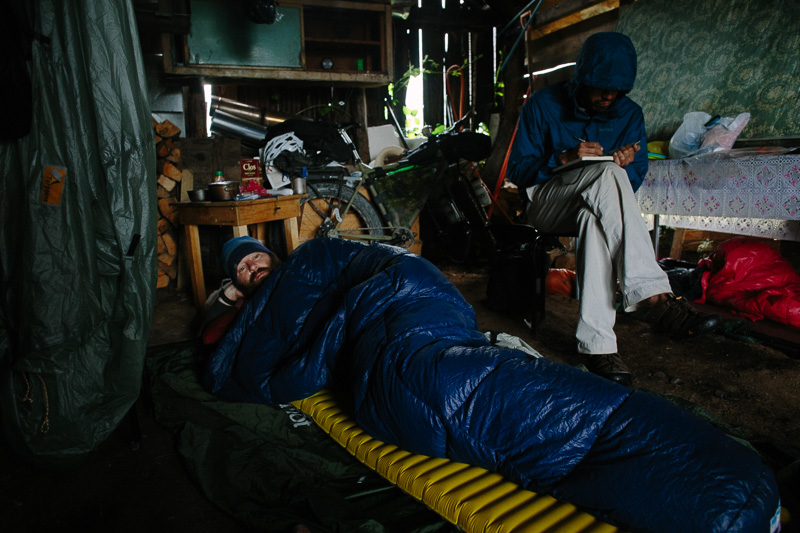
Braving the deluge, I dug into a long day to catch up with friends Daniel and Jorge, from the Bay Area, California. I’ll be enjoying their company for the next few weeks, en route to Villa O’Higgins, the last town along the Carretera Austral. Note their fat bikes… More on that soon!
Top tips:
Run the widest tyres you can, to help tame those tooth-rattling corrugations in the road.
Prepare to be engulfed by dust when the sun dries out along the ripio. Bring high factor sun cream, it’s easy to burn.
And ensure your gear (electronic, especially) is 100% protected from water too. They’ll be rain, and plenty of it. I invested in a range of new dry bags, purchased in a well-stocked camping store on the ground floor of Puerto Montt’s mall.
Try the seafood empanadas at Caleta La Arena while waiting for the ferry. Delicious.
Road surfaces:
On the whole, it’s been a mixture of pavement and gravel, peppered with some stretches of corrugation. Roadworks en route means stints on loose, egg-sized stones. But nothing a large volume mountain bike tyre can’t handle comfortably.
Maps:
There’s a decent free map to be had from the tourist office in Puerto Montt, though the road atlas from the Copec gas station is said to be best. I bought a series of 4 maps that cover the whole of the country, called Cartas Camineras, from some Chilean cyclists I met – which is apparently available in Santiago.
Basics:
Chile is considerably more expensive than anywhere else I have visited in South America. Even camping in a guesthouse is more than a room in Peru might cost you.
Casa Perla is a lovely hospedaje in which to base yourself for a night or two in Puerto Montt. Camping in its garden is 6000 pesos ($12), inc breakfast and wifi.
Aside from free camping in the likes of football pitches, along beaches and patches of land (easier as you go south), organised campsites and hospedajes abound – handy for all day downpours. They’re not cheap though – expect to pay 2500 pesos ($5) and upwards to camp (often covered), and twice that to stay in a simple dorm. Wifi is omnipresent, and generally available in campsites.
Check on ferry times in advance. Costs have been 2700 to 5000 pesos so far ($5-10), including the bike. Most towns have a tourist office, which is handy when you arrive in the pouring rain, and need to find somewhere to stay.
Food is also more expensive here than elsewhere in Chile (which is already a considerable hike up in price from Peru/Bolivia). For the time being, it’s been easily available on this first stretch. To help keep to a budget, I sustain myself on 1000 peso ($2) empanadas when I can. And I make all my own meals, rather than relying in cheap ‘menus’, as I did in Peru.
Wifi:
I’m always on the hunt… Apart from cafes/some campsites, it’s always worth checking town squares. On this stretch, there’s free wifi in Hornopiren and Chaiten.
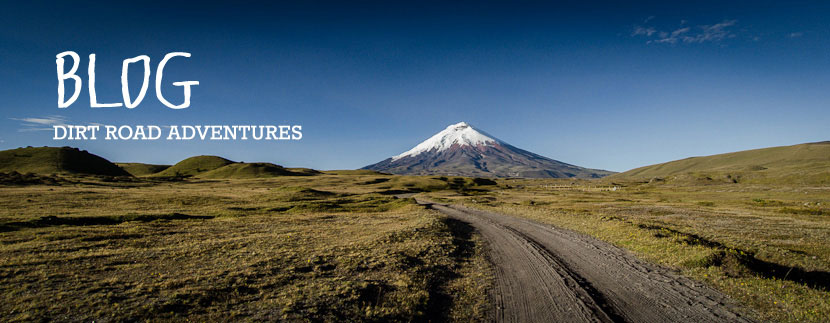

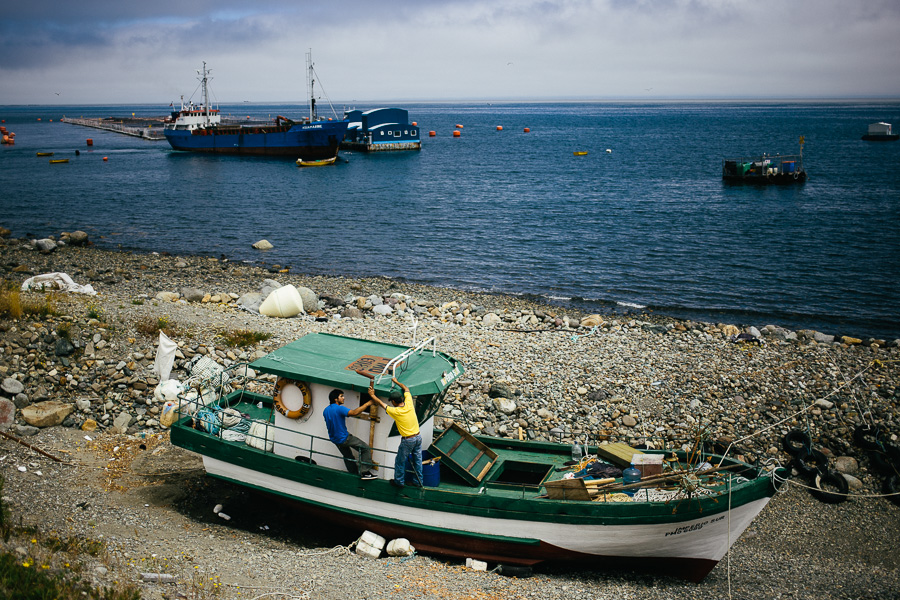
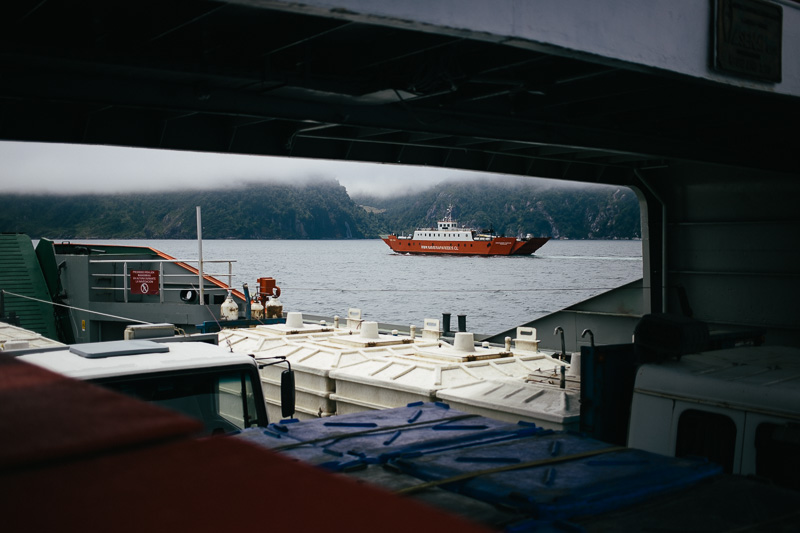
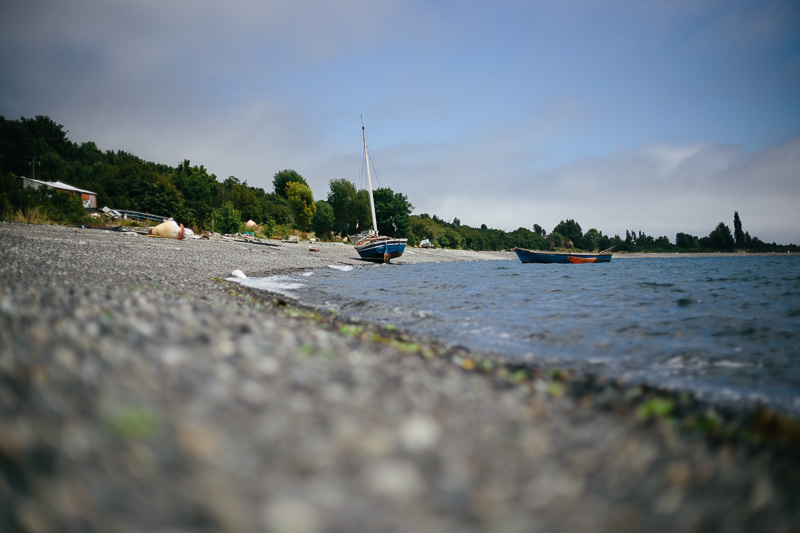
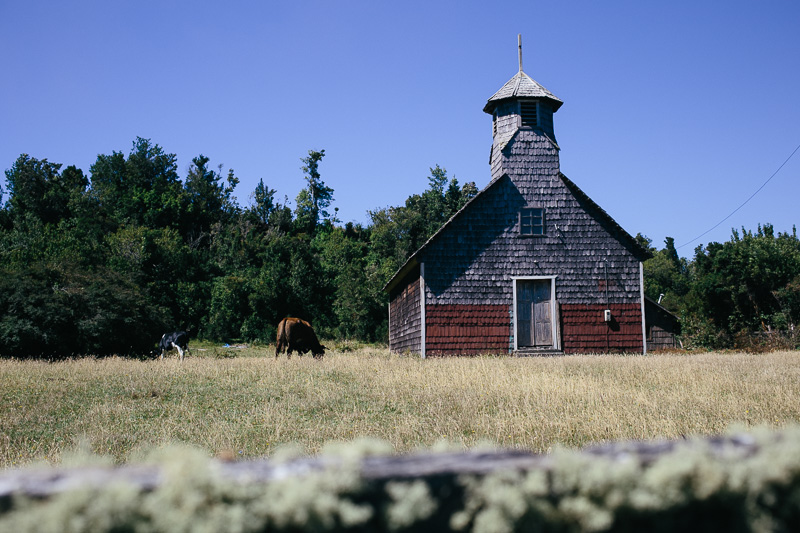



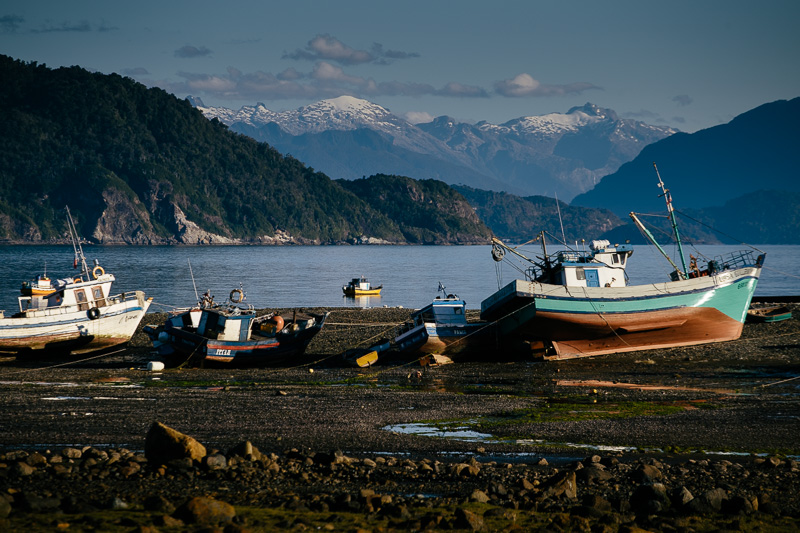
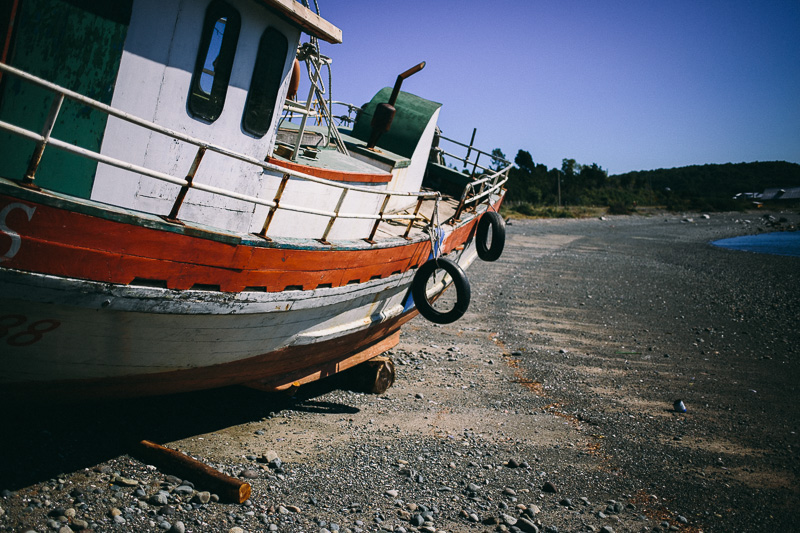
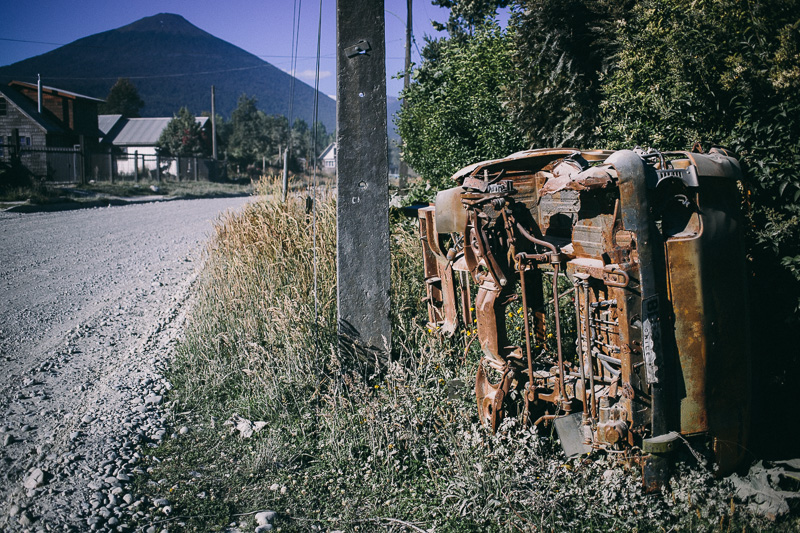

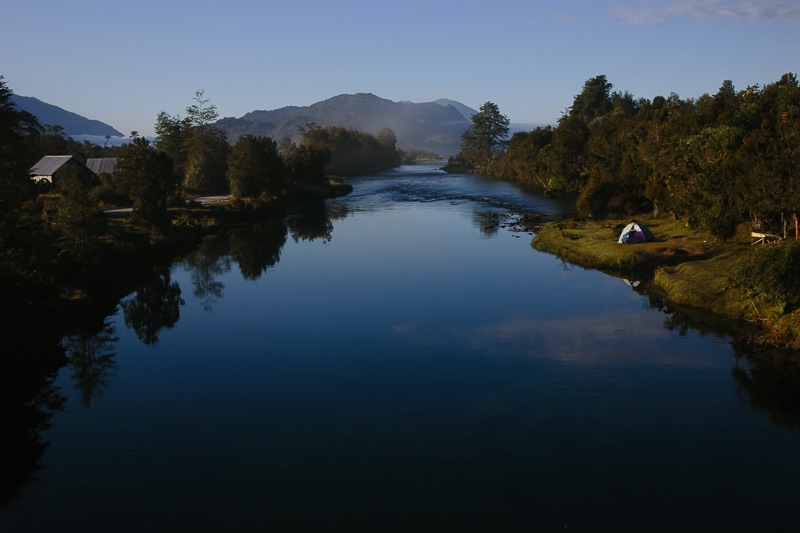
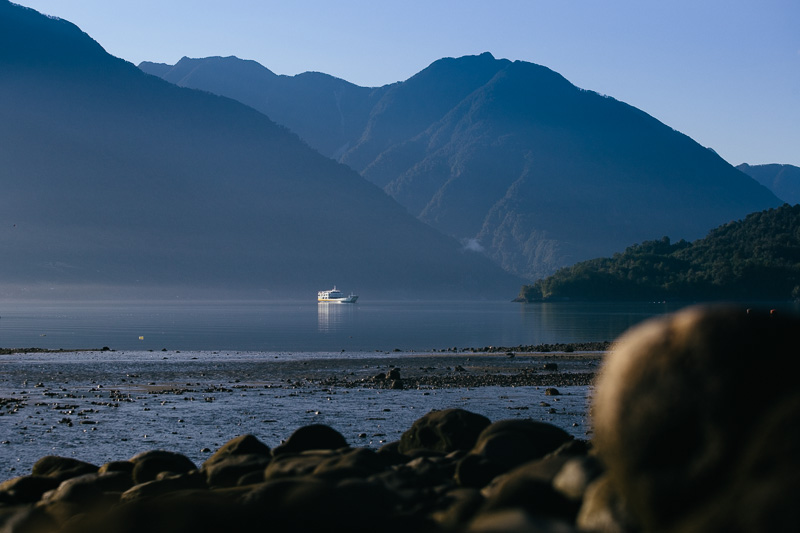
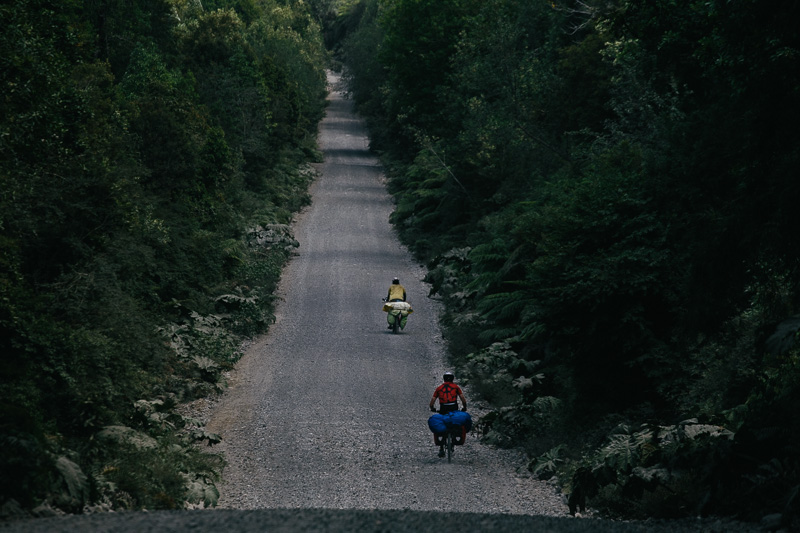
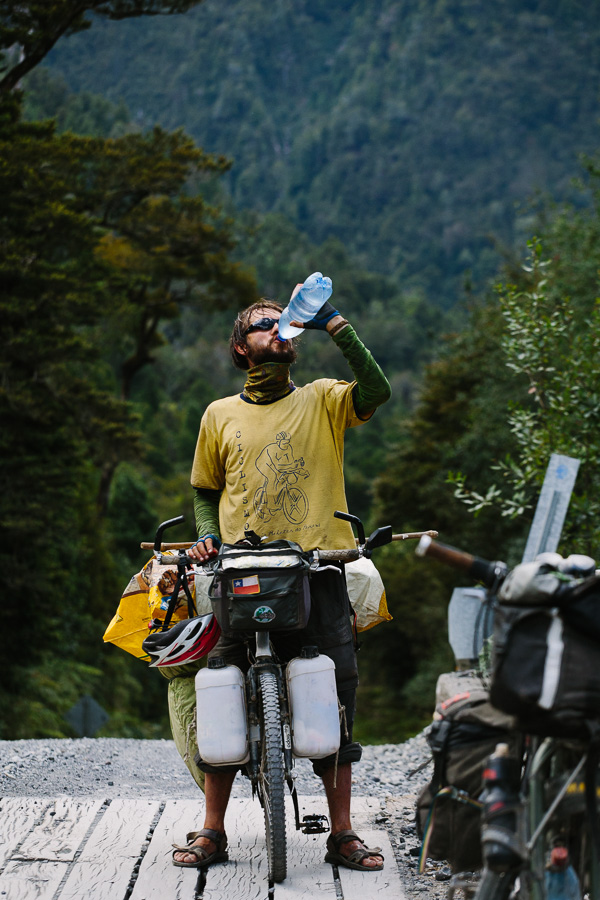
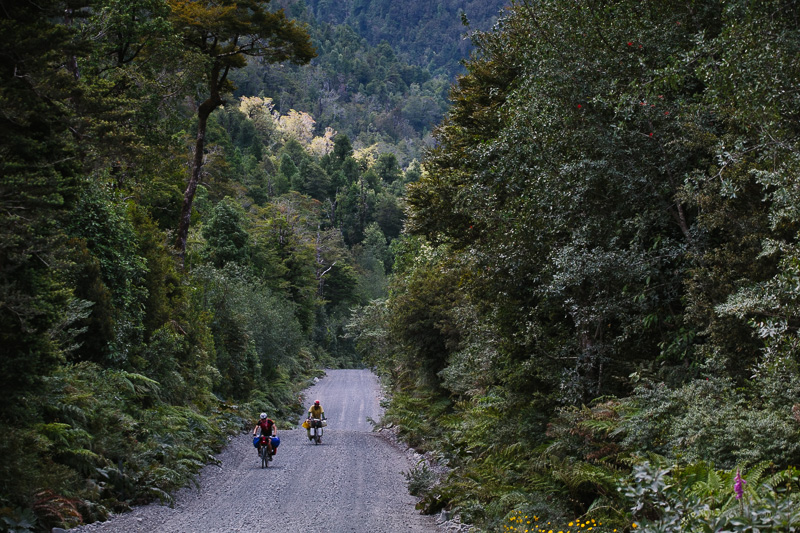
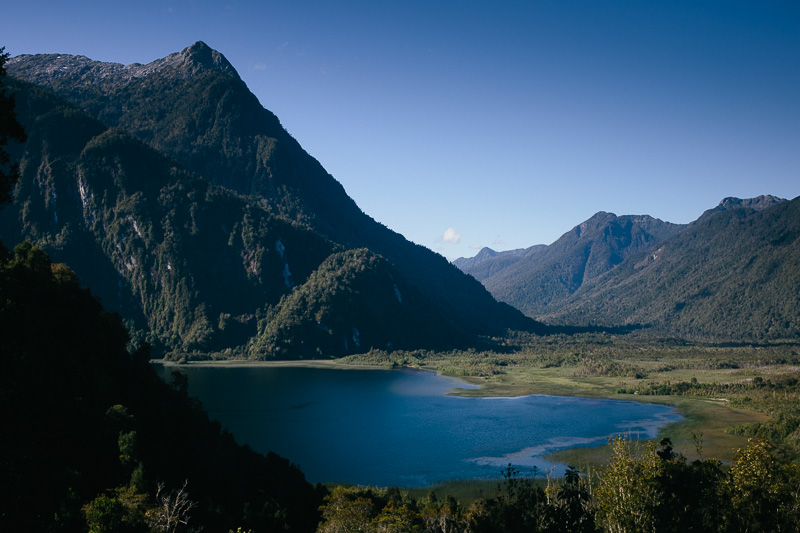
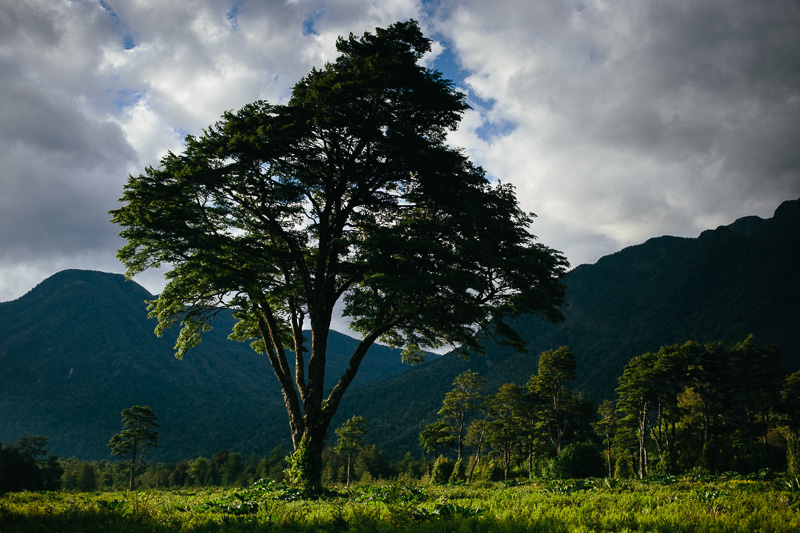
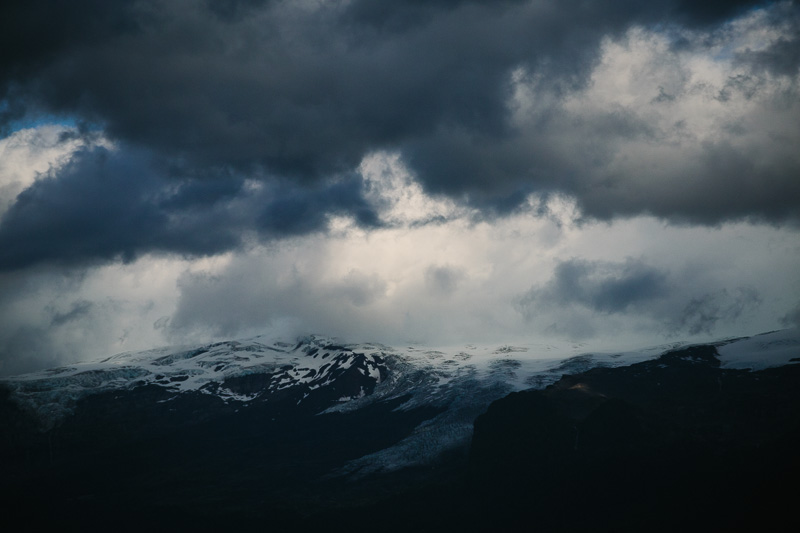
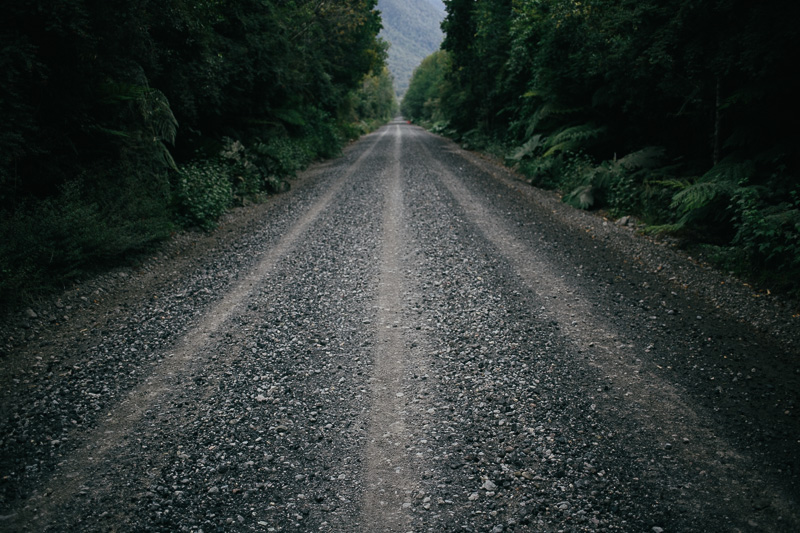
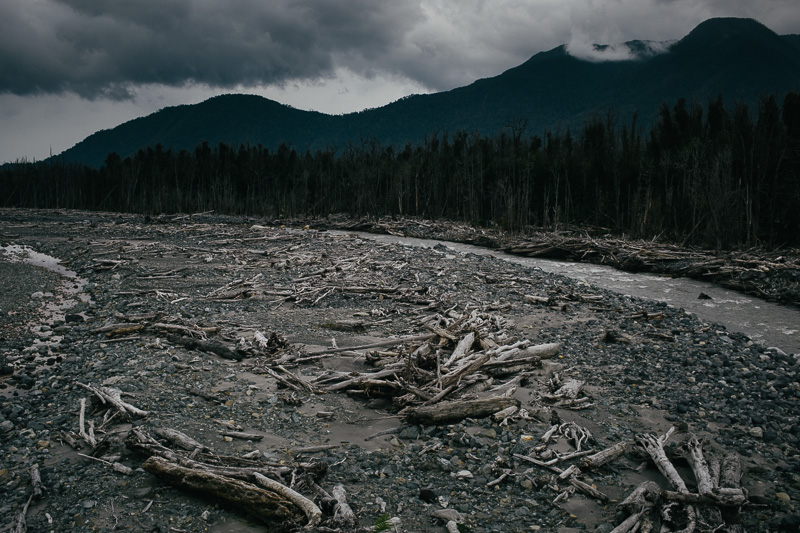



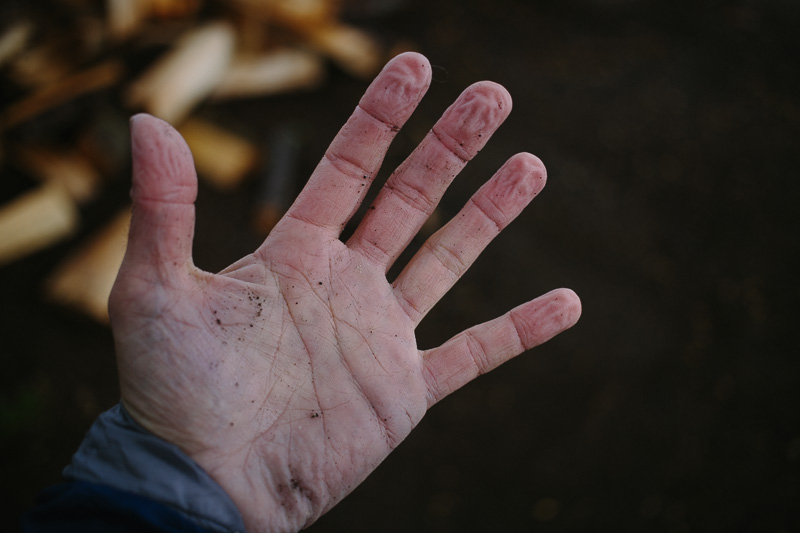

Hi Cass,
still did not find much time for responding to your email as we had planned a lot. We started in Santa Lucia going from N to S. There is a nice restaurant on the end where we got a massive salmon steak for nice $. You will also enjoy road works from there 😉 but for me was interesting. Always wild camping. There is a casa de ciclista in Villa Minahaules. Before Coihaique we went through Villa Ortega which I did not regret. I’ put some more of the southern section together for you on the Navimag ferry. Carretera s straight forward.
You mentioned tooth-rattling corrugations in the road – I guess that’s the reason why my Pentax mirror stopped working. Now I am worried about X-E2, but will do something about protecting it better.
Take care for now and keep on exploring ! I’m heading for seasickness pills…
Thanks for the tips. Have reached Coyaique, moving on today. If you get the chance to jot anything down, it would be much appreciated! (places with wifi extra useful)
What I recall is that WiFi became harder to come by south of coyhaique, the next sure place is “El Mosco” (great hostel with camping) in Villa of higgins. There will probably be some in El salto, but I didn’t check.
I forgot, and ofcourse Cochrane has Wifi too, there’s a great hostil there called “Lat 47 sur”, and the big supermarket at the townsquare is very well stocked. If past Cochrane you are in need of shelter (like we were) take a left onto the X-902 (just before the second big bridge out of Cochrane, If i remember correctly). There’s a cabin there for rent, run by a wonderfull familie, woodfired stove etc..
Thanks Stijn.
Seems Puerto Tranquillo is jacked in too…
Awesome. You are killing me with the talk of seafood… we have been living on chicken and pap for the last bit (as well as the usual peanut butter ration) here in Eastern Africa. I think it will only get more basic as we are heading into Zimbabwe. The mussels and avocado made my mouth water. Wonderful pics as always… Cheers!
I have to admit, for the most part it’s been a pasta/sauce/sausage medley. Scenery more than makes up for some culinary repetition, though (-:
Lovely images, as always, Cass. (I remember the dalmatian store well!)
Cheers, Joe
…Fat bikes. Ripio.
Match made in heaven?
Looks terrible. I’m turning around.
Don’t turn round before I turn round.
Stunning, my friend.
Can’t wait to see some shots of Daniel’s Pugsley in action. It was sitting idly in the living room last time I saw it, desperate for some South American dirt.
Those tyres eat ripio for breakfast. And they spit out gravel like a bad taste.
Looks gorgeous. I’m almost there, finally….
(BTW: how are you doing finding alcohol for the Trangia in Chile? I’ve been finding it more challenging than usual.)
No probs finding denatured alcohol. I’ve been asking for alcohol de quemar in the hardware stores. So far, so good.
Looks like a great place to bring a packraft! At least you don’t need to load up with water.
This place must surely be packraft heaven.
Hey Cass! Nice pics! Especiialy of my front panniers (aka milk jugs). Hahaha. Just reached Puerto Rio Tranquilo. The weather got a bit wetter than I expected. Stay dry and hope to see you somewhere on the way to Ushuaia! Greets from Joanna!
Artur, I’m in Cochrane, awaiting a new bottom bracket – due today on the bus from Coyhaique. So you may catch me up! It’s a beautiful stretch from Rio Tranquillo here.
Beautiful pictures! Brings back memories from a Carratera road trip a few years ago 🙂
Thanks. Glad to hear its rekindled some happy thoughts, Willem.
Knew you’d make the Carretera look more beautiful than I remember it! Looks like you’ve had a decent percentage of clear days so far…hope it continues!
That would be the careful editing (-; Seriously though, I’ve found it a beautiful ride. So lush and social!